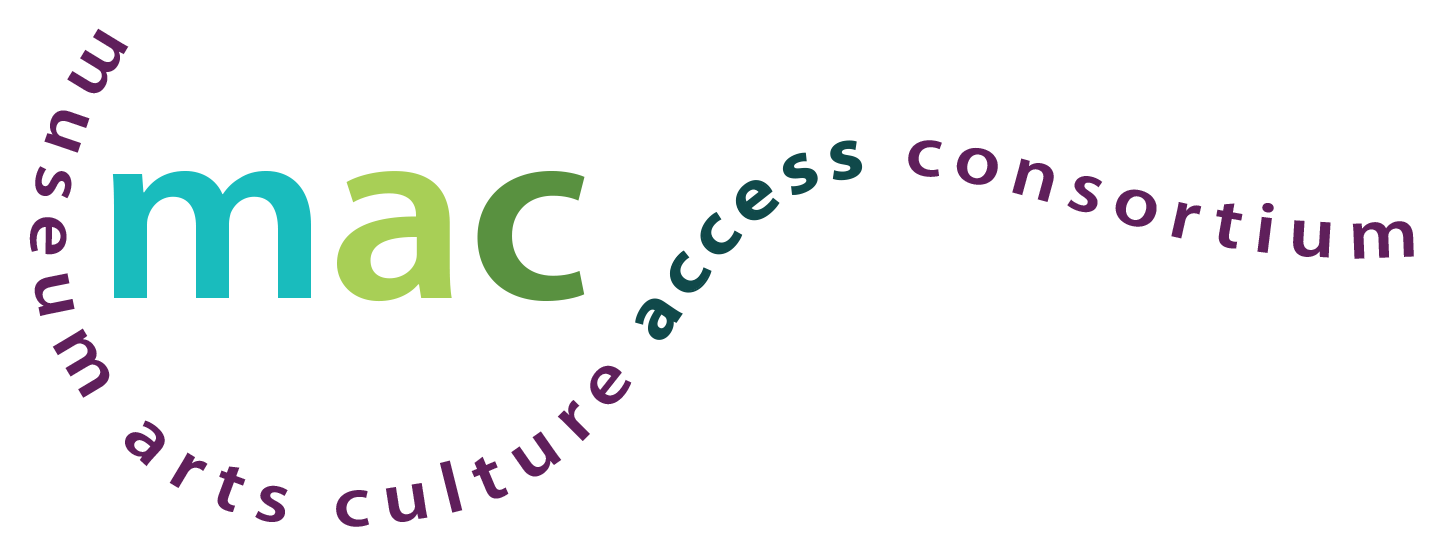25 Apr Parents and Educators of Children with Autism Share Their Museum Experiences
The following audio clips are of parents and educators sharing their feedback and advice for cultural professionals on program design for young visitors who have autism. The recordings below are from Museum Access Consortium’s professional development workshops with parents and educators and from visiting with parents out at cultural institutions. This compilation of audio clips will continue to grow as we continue our documentation efforts.
Advice for Cultural Accessibility Professionals
Peggy Groce, Office of Travel Training, New York City Department of Education
Attended Welcoming Visitors who have Autism: Museum Professionals Share Their Experiences, a MAC professional development workshop hosted on March 7, 2012
[soundcloud url=”https://api.soundcloud.com/tracks/192946013?secret_token=s-73uYx” params=”color=00aabb&auto_play=false&hide_related=true&show_comments=false&show_user=true&show_reposts=false” width=”100%” height=”166″ iframe=”true” /]
-
Transcript: A couple of things: I would not focus on their special needs. I would focus on the fact that they are kids or they are adults who have a need to use the museum, who have a need to be treated with respect, who have a need to learn and to engage with everybody else. We may have to take a different path to get them engaged but that’s the burden on us. We have the special need and that is to learn how to engage them… I think that’s important to know because that can reduce some of our fear and can reduce some of our anxiety. They’re just people. How do we reach them and what do we do? The second thing is to be very clear in your purpose: Why are you doing it? Is it because it’s politically correct? Eh. Is it because it’s required? What is your reason in terms of running your museum and wanting everyone to gain what you have and to participate? Be very clear in your purpose and have a small one to start because you need to feel as successful as the people coming in do, so that you can all have a better time.
The Value of Visual Supports For Museum Visits
Wendy Wick, Parent and Member of the Parent Advisory Committee at the Intrepid Sea, Air, and Space Museum
Recorded at the Intrepid Sea, Air, and Space Museum’s Early Morning Opening for Children with Autism and their Families on January 31, 2015
[soundcloud url=”https://api.soundcloud.com/tracks/193002221?secret_token=s-i45QY” params=”color=00aabb&auto_play=false&hide_related=true&show_comments=false&show_user=true&show_reposts=false” width=”100%” height=”166″ iframe=”true” /]
-
Transcript: Some families, and depending on what the activity is, will download the sheets beforehand and work through the activities. Some get them at the moment where they sign in and the kids get their nametags. We use them after the fact to tell other family members, friends, and the school what we did on the weekend. So all of these kids have social skills and language components built into their curriculum and these aids really help for them communicate what they did on the weekend beyond, “I went to a boat. I liked it.” [laughter] Yeah, and it gives the folks who aren’t here with us an opportunity to engage, read it, look at the pictures, and ask a few questions. The crafts and activities that they do are very mobile to be able to take home with you and then send in to school, which also serve as additional visual prompts and aids for them to connect with kids at school and the teachers and share the experience even further.
The Impact of Internship and Work Experiences
Beth Rosenberg, Parent of a Child with Autism and Executive Director, TechKids Unlimited
Attended Parents of Children with Autism Share Their Museum Experiences, a MAC workshop hosted on February 25, 2013
[soundcloud url=”https://api.soundcloud.com/tracks/230003289?secret_token=s-27GpC” params=”color=00aabb&auto_play=false&hide_related=true&show_comments=false&show_user=true&show_reposts=false” width=”100%” height=”166″ iframe=”true” /]
-
Transcript: All of these little kids become big kids and we need to get them jobs. I am really scared for my kid, and maybe other parents here feel scared as well, but I don’t know what my kid is going to do. I don’t even know if my kid is going to go to college or make it through community school. So, I want to plead with everyone here to please open up your museum or cultural institution to internships for these kids. It is the best way for these kids to learn. Yes, it takes more time. They need more hand-holding. They need more job-coaching. If everyone sitting at this amazing table could say, “I’m going to commit to taking one or two kids under my wing for the next year for a summer internship, a weekend internship,” we’re going to see a lot more hopefully progress in the world of autism.
Paul Johnson, Parent
Attended Parents of Children with Autism Share Their Museum Experiences, a MAC workshop hosted on February 25, 2013
[soundcloud url=”https://api.soundcloud.com/tracks/192945689?secret_token=s-WwEio” params=”color=00aabb&auto_play=false&hide_related=true&show_comments=false&show_user=true&show_reposts=false” width=”100%” height=”166″ iframe=”true” /]
-
Transcript: This didn’t come up particularly with our discussion but one of the things that is true of Andrew’s experience was that he was able to be a docent at the Prospect Park Zoo at age 14, 15 as a summer job. He excelled at this job even though it required social skills and things that were not his strong suit, but he took to the job and learned all of the facts. That is his strong suit. So, just encouragement to be open to having kids on the autistic spectrum to be in programs that might not be designed for them. The other thing I’m thinking of is the Museum of the Moving Image was a key for him entering a museum experience where it was his subject and it was interactive and boy, did that accelerate a lot of things for him. So, just encouragement in that direction.

Sorry, the comment form is closed at this time.